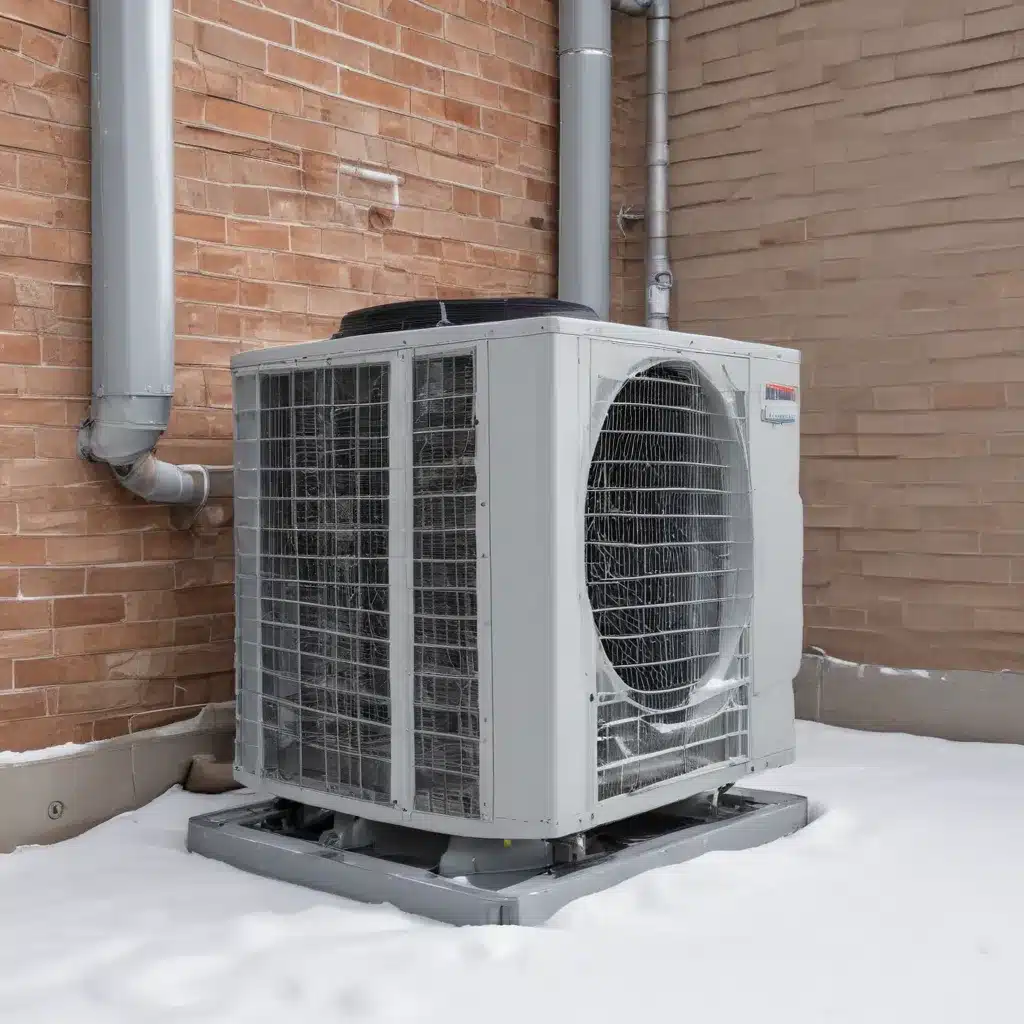
As an experienced HVAC specialist, I understand the importance of ensuring your heating system is primed and ready to tackle the demands of the winter season. Whether you’re a homeowner in Arizona or a commercial property manager in the Northeast, optimizing your HVAC system can make all the difference in maintaining comfort, reducing energy costs, and prolonging the lifespan of your equipment.
Now, this might seem counterintuitive when dealing with air conditioning systems…
HVAC System Components
At the heart of your winter heating setup are the core components that work together to keep your indoor spaces warm and cozy. This includes your heating appliances, such as furnaces, boilers, or heat pumps, as well as the air conditioning equipment that may double as a heat source during the colder months. Equally crucial are the ductwork and ventilation systems that distribute warm air throughout your living or work spaces.
Ensuring these elements are functioning optimally is key to maximizing HVAC performance and efficiency during the winter season.
Preventative Maintenance Strategies
One of the most effective ways to optimize your HVAC for winter is through preventative maintenance. Regular inspections, cleaning, and tune-ups by a qualified technician can catch minor issues before they escalate into costly problems.
A thorough routine inspection allows the technician to evaluate the overall condition of your system, identify any potential problem areas, and make necessary adjustments. This may include checking electrical connections, inspecting for proper airflow, monitoring refrigerant levels, and ensuring safety controls are working as intended.
In addition to the inspection, the technician will perform essential cleaning and tuning tasks. This could involve clearing debris from components, lubricating moving parts, and calibrating system controls for peak efficiency. Regular maintenance also ensures that critical replacement parts, such as air filters, are swapped out as needed, keeping your HVAC running smoothly.
Enhancing System Efficiency
Beyond maintaining your existing HVAC equipment, there are several strategies you can implement to boost the overall energy efficiency of your heating system. This is especially important during the winter when energy demands are typically higher.
One of the most impactful efficiency upgrades is improving insulation and air sealing throughout your building’s envelope. Sealing air leaks around windows, doors, and other openings, as well as adding high-performance insulation to walls, attics, and crawl spaces, can significantly reduce heat loss and lower your heating costs.
Another effective approach is integrating smart thermostat technology into your HVAC system. These programmable controls allow you to precisely manage your heating needs, creating customized schedules and temperature settings to match your occupancy patterns. Many smart thermostats also offer remote access and monitoring capabilities, giving you greater control over your indoor climate from anywhere.
For those looking to maximize efficiency, energy-efficient HVAC upgrades can make a substantial difference. Replacing older, low-efficiency heating and cooling equipment with high-performance models can deliver significant energy savings, often paying for themselves over time through reduced utility bills. Additionally, zoned climate control systems enable you to target heating to specific areas of your home or business, rather than conditioning the entire space uniformly.
Preparing for the Winter Season
As the temperatures begin to drop and winter approaches, it’s essential to double-check that your HVAC system is ready to handle the demands of the colder months. Seasonal tune-ups are a crucial step in this process, allowing a qualified technician to thoroughly inspect your system and make any necessary adjustments or repairs.
During a pre-heating inspection, the technician will check for proper airflow, double-check that all electrical connections are secure, and top off any coolant or refrigerant levels. This proactive approach helps identify and address potential issues before they turn into costly breakdowns, keeping your system running at peak performance.
It’s also important to consider winter weather protection for your HVAC components. This may involve insulating exposed piping to prevent freezing, clearing away snow and ice from outdoor units, and taking steps to safeguard against the effects of harsh winter conditions.
Should an unexpected issue arise, having a plan for emergency preparedness can provide peace of mind. This could include identifying backup heating solutions, such as portable space heaters or fireplaces, and familiarizing yourself with basic troubleshooting and repair procedures to handle minor problems until a technician can arrive.
Improving Indoor Air Quality
Optimizing your HVAC system for winter goes beyond just maintaining comfort and efficiency; it also involves enhancing your indoor air quality. As we spend more time indoors during the colder months, ensuring the air we breathe is clean and healthy becomes increasingly important.
Air filtration and purification play a crucial role in this process. Upgrading to high-efficiency air filters can trap more airborne particles and allergens, while the installation of air purifiers can further improve indoor air quality by removing contaminants and odors.
Humidity control is another key factor in maintaining a comfortable and healthy indoor environment during the winter. Dry air can lead to a range of issues, from static electricity to respiratory irritation. Integrating whole-home humidifiers or dehumidifiers can help regulate moisture levels, keeping your living or work spaces at an optimal relative humidity.
Lastly, ventilation optimization ensures that fresh, clean air is continuously circulated throughout your indoor spaces. This may involve upgrades to your existing ventilation system, such as increasing fresh air intake or enhancing exhaust capabilities, to promote better air circulation and distribution.
By addressing these various aspects of your HVAC system, you can create a comfortable, energy-efficient, and healthier indoor climate that will serve you well throughout the winter season and beyond.
To learn more about how US Air Contractors can help you optimize your HVAC system for the winter, contact us today. Our team of experienced technicians is ready to assess your needs and provide tailored solutions to double-check that your home or business stays warm, cozy, and energy-efficient all season long.
Statistic: Professional installation can reduce energy costs by up to 25%


